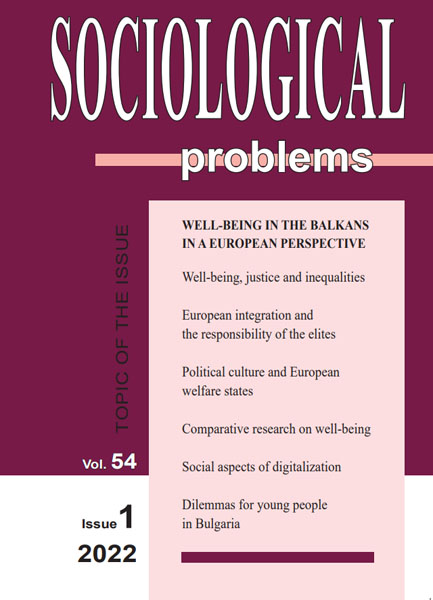Tolerance in the Balkans: the European Context
Tolerance in the Balkans: the European Context
Author(s): Liliya Dimova, Martin DimovSubject(s): Social Sciences, Sociology, Applied Sociology, Social differentiation, Social Theory, Social Norms / Social Control, Sociology of Politics
Published by: Институт по философия и социология при БАН
Keywords: ; Tolerance index and subindex; ESS; Random Forest Algorithm; diversity
Summary/Abstract: This paper investigates tolerance in the Balkans for the “different others”, for members of the LGBT community and for migrants in a cross-cultural European context. Tolerance is defined as a value construct of willingness to accept the right of different people to live according to their cultural models even if the latter are not always acceptable for other social groups. For us, tolerance is a multi-dimensional social phenomenon combining four interconnected components: perception, recognition, appreciation, and acceptance of diversity. Our main goal here is to discover how six Balkan societies consider people of different sexual orientations, migrants, and “different others” in comparison with the rest of Europe. We have used data from Round 9 of the European Social Survey (ESS) as the empirical background and purposefully constructed three main discourses grounded on: 1) Tolerance Indexes ‒ to measure the levels of tolerance; 2) Key Driver Analyses ‒ to measure the impact of influencers on tolerance levels through the application of a machine learning algorithm for each selected country; 3) Measuring the impact of the GDP as a macro-level control indicator of tolerance levels. We found a serious discrepancy between the discursive declaration of acceptance of diversity and selectiveness in actual practice. In general, European tolerance is higher on a hypothetical basis (as a publicly reported positive standpoint towards “different others”) than with regard to actual targets. In particular, tolerance in the Balkans is four times lower than in the rest of Europe. Influencers on tolerance rank differently in each society, but the top common vector is trust in people and national institutions (although the linear correlations in the Balkans and in Europe go in opposite directions), followed by happiness, religion, and the living standard.
Journal: Социологически проблеми
- Issue Year: 54/2022
- Issue No: 1
- Page Range: 262-281
- Page Count: 20
- Language: English
- Content File-PDF

